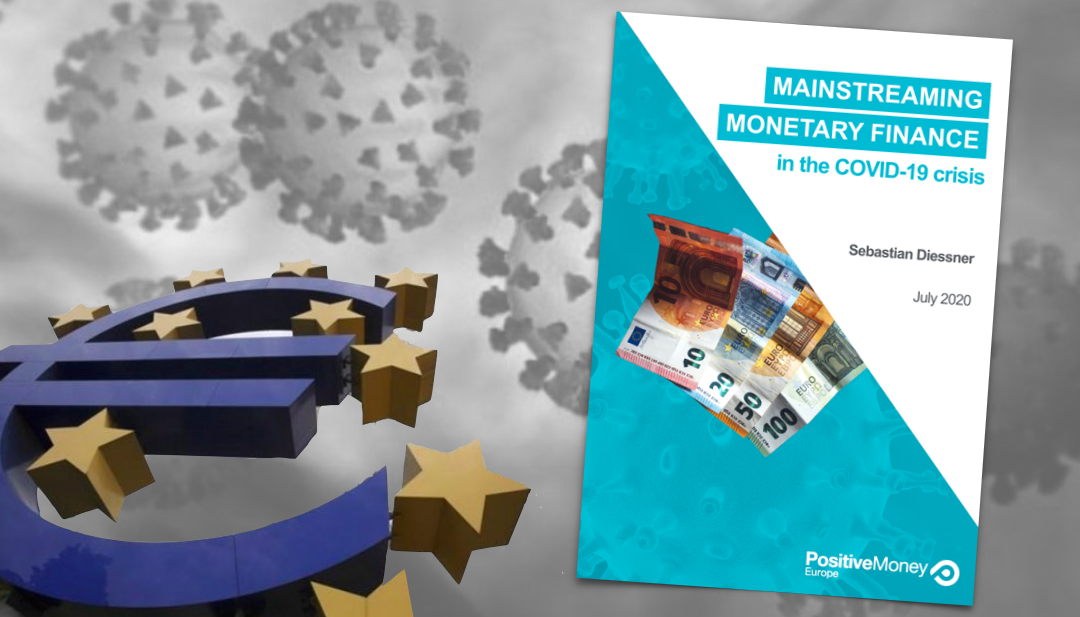With Eurozone governments spending huge amounts to fight the recession caused by Covid-19, the debt sustainability debate and how to manage it will only intensify in the coming months. Positive Money Europe’s new report, written by Sebastian Diessner, assesses the merits and drawbacks of different monetary finance proposals with the potential to revive the euro area economy.
Over the last few months, governments across the Eurozone have taken unprecedented measures to negate the worst effects of the post-coronavirus recession and to attempt to lay the groundwork for economic recovery. While the recently agreed EU Recovery Fund is a welcome contribution to this, the painful negotiations needed to approve it suggest fiscal policy alone will not be enough to revive the European economy. The monetary policies of the European Central Bank (ECB) – just as in the Eurozone crisis – will again need to step up to the plate.
Positive Money Europe’s new report, Mainstreaming monetary finance in the Covid-19 crisis, seeks to structure the debate on how the ECB should do this by ordering, categorising and assessing the monetary policy options it has at its disposal to tackle the upcoming recession.
Monetary finance can negate the worst effects of the upcoming recession
The ECB has already demonstrated its ability to act quickly in response to the pandemic through the launch of its Pandemic Emergency Purchase Programme. But the bank must still do whatever it takes to avert another Eurozone crisis caused by Covid-19, and monetary finance has the potential to play a key role in this.
This potential has inspired a growing number of proposals on how to design monetary finance within Europe to negate the worst effects of the Covid-19 recession. Positive Money Europe contributed to this discussion in April 2020 by championing helicopter money in the form of direct cash transfers to euro area citizens – an idea that we have been advocating for since 2015.
However, many other monetary policy proposals are on the table – each with different positives, negatives and levels of political and legal feasibility. Report author Sebastian Diessner has provided a theoretical framework for the discussion on which could be implemented, as well as a clear systemisation of the existing proposals.
Stopping a deflationary spiral
The report shows how the ECB is currently trapped in a ‘trilemma’ – where the bank can only meet two of its three goals of achieving price stability, maintaining financial stability and minimising risks on its balance sheet. If a deflationary spiral occurs – which appears very likely in the wake of Covid-19 – monetary financing could resolve this trilemma by providing an extraordinary boost to previously sluggish or non-existent inflation.
Following on from this, the report’s annex details 13 monetary responses proposed by various academics to address the crisis, documenting the technical, legal, political and governmental aspects of each.
Looking beyond the specific challenge posed by the Covid-19 crisis, the report adds to the argument that revision of the EU’s Treaty framework appears increasingly necessary in order to resolve tensions between the legal basis of the European Monetary Union – and the economic reality in which it operates.
It is clear that monetisation is entering the mainstream, but the debate around it is still polarised. It must not be seen as either completely taboo or a panacea to Europe’s economic ailments. But it must be taken seriously by policymakers, especially if the European economy enters a deflationary spiral which fiscal efforts cannot counter.


